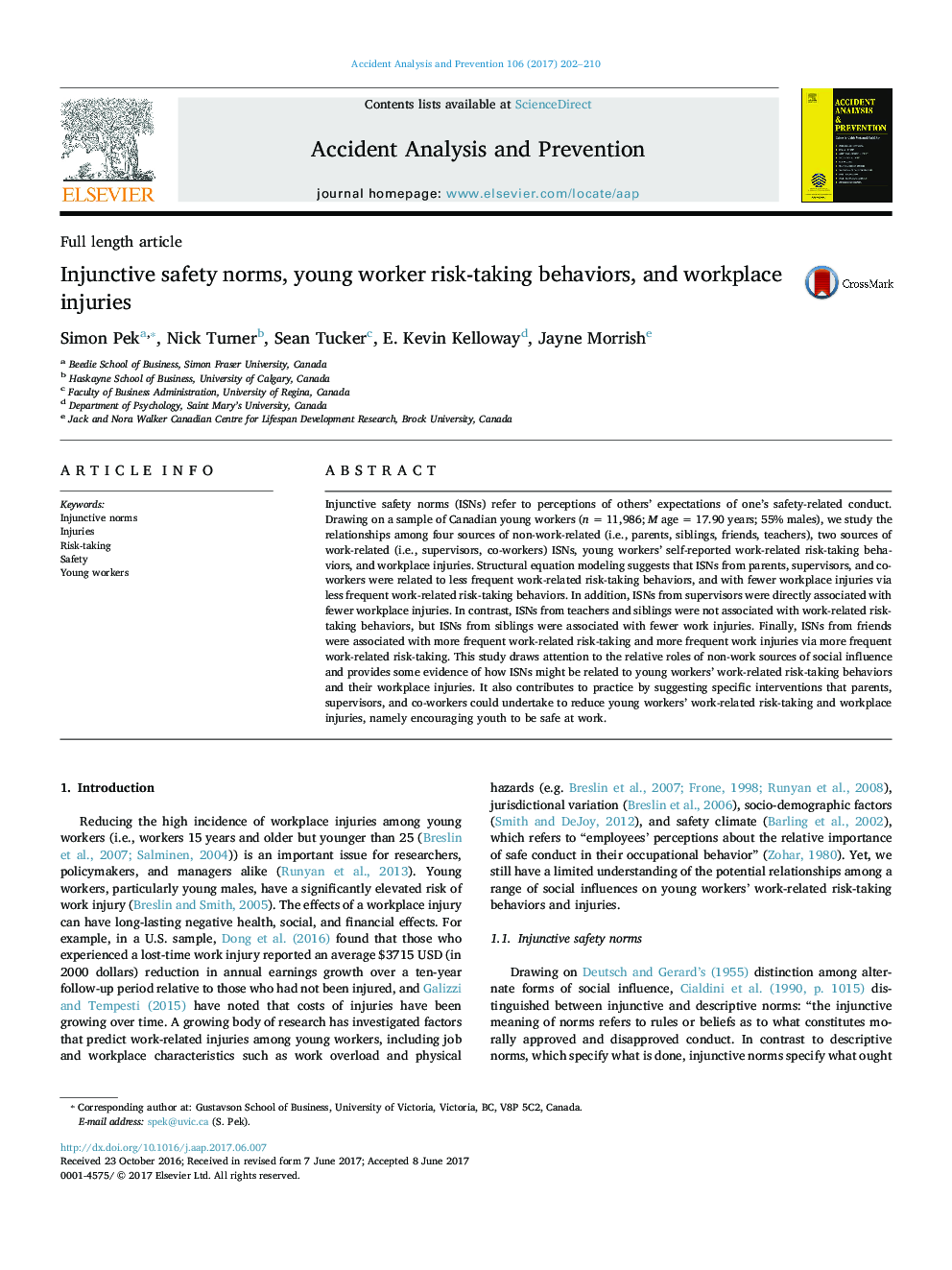| Article ID | Journal | Published Year | Pages | File Type |
|---|---|---|---|---|
| 4978687 | Accident Analysis & Prevention | 2017 | 9 Pages |
Abstract
Injunctive safety norms (ISNs) refer to perceptions of others' expectations of one's safety-related conduct. Drawing on a sample of Canadian young workers (n = 11,986; M age = 17.90 years; 55% males), we study the relationships among four sources of non-work-related (i.e., parents, siblings, friends, teachers), two sources of work-related (i.e., supervisors, co-workers) ISNs, young workers' self-reported work-related risk-taking behaviors, and workplace injuries. Structural equation modeling suggests that ISNs from parents, supervisors, and co-workers were related to less frequent work-related risk-taking behaviors, and with fewer workplace injuries via less frequent work-related risk-taking behaviors. In addition, ISNs from supervisors were directly associated with fewer workplace injuries. In contrast, ISNs from teachers and siblings were not associated with work-related risk-taking behaviors, but ISNs from siblings were associated with fewer work injuries. Finally, ISNs from friends were associated with more frequent work-related risk-taking and more frequent work injuries via more frequent work-related risk-taking. This study draws attention to the relative roles of non-work sources of social influence and provides some evidence of how ISNs might be related to young workers' work-related risk-taking behaviors and their workplace injuries. It also contributes to practice by suggesting specific interventions that parents, supervisors, and co-workers could undertake to reduce young workers' work-related risk-taking and workplace injuries, namely encouraging youth to be safe at work.
Related Topics
Physical Sciences and Engineering
Chemical Engineering
Chemical Health and Safety
Authors
Simon Pek, Nick Turner, Sean Tucker, E. Kevin Kelloway, Jayne Morrish,
